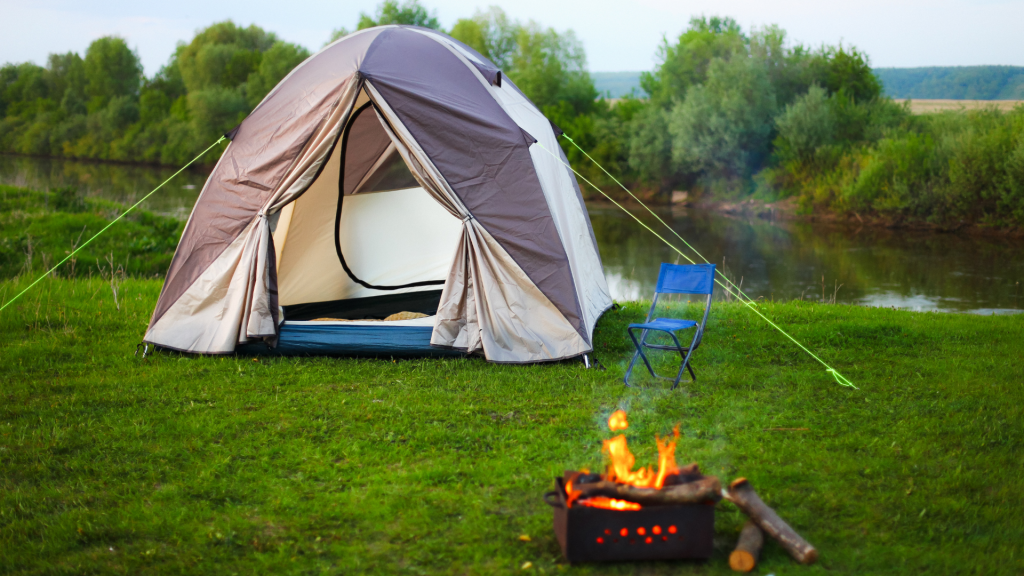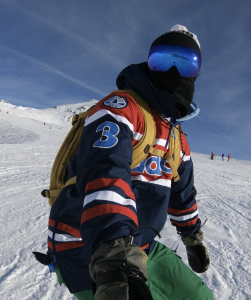
8 Travel Tips For The Perfect Camping Trip
Travel Camping can be a wonderful way to spend time outdoors, but it’s not always easy. With all the planning, packing, and worrying that goes into a camping trip, there are inevitable problems that arise with little warning. In this article, we will discuss eight easy-to-follow tips for a successful camping trip, so that you don’t have to worry about unforeseen situations!
1. Plan the Trip With Your Friends
Planning a camping trip with your friends can be a lot of fun. There are a few things you’ll want to take into account to make the trip as enjoyable as possible.
First, decide on the destination. You’ll need enough space for everyone to pitch their tents and camp comfortably. Remember that there is no need to go far away from civilization if you’re planning on staying close to the nearest park or river.
Next, choose your camping gear. You’ll need tents, sleeping bags, backpacks, cooking equipment, and any other supplies you’ll need for the trip. Make sure to pack plenty of food and drink as well so that you don’t have to worry about running out during your stay outdoors.
Finally, plan your itinerary. Decide what days you’ll be camping and which activities you’d like to do on those days. This will help make sure that you don’t miss any important landmarks while on your trip.
2. Pack Light and Have a Backup Travel Plan
One of the best ways to save on weight when packing for your camping trip is to pack as little as possible. Keep your gear simple and limit yourself to only what you need for the duration of your stay. This way, you won’t have to worry about bulky gear taking up space in your car or trailer. If there’s something you absolutely cannot live without, like your tent or sleeping bag, try shopping for an ultralight version online before traveling.
No matter how careful you are, accidents will happen on a camping trip. Always have a backup plan in case something goes wrong while you’re away from home. Include alternative routes, emergency numbers, and contact info for family and friends if necessary so they can help out if things take a turn for the worse. Also, be sure to add contingencies for weather conditions so that you’re prepared for anything imaginable during your time outdoors.
3. Pack Enough Toilet Paper
Whether you’re hitting the open road or taking a break in nature, packing adequate toilet paper is key. But it’s not just the unexpected that can strike while on your journey – nature can also be unpredictable.
In case of an emergency, having enough toilet paper on hand is essential. And if you’re camping, having a few extra rolls will come in handy for wiping down everything from your campsite to your food: no one wants to end up with a smelly campsite!
When packing for your trip, make sure to include some toilet paper in your luggage, and don’t forget to pack extras for emergencies.
4. Carry Dry Clothes in a Bag or Backpack
When packing for a camping trip, remember to pack your clothes dry. This will help avoid the hassle of having to wash them out and dry them at home before packing. It’s also a good idea to pack a few towels so you can clean up after yourself.
5. Dress for All Weather
When planning your camping trip, be sure to take into account the weather. Weather can change quickly and it is best to dress for all weather. In particular, be prepared for hot weather, as even a light jacket can help keep you comfortable. If you are camping in a warmer climate, make sure to bring along sunscreen and insect repellent. And if the forecast calls for rain or snow, don’t forget your raincoat and snow boots!
6. Staying Safe from Bears while Camping
If you’re camping in a bear country, it’s important to know how to identify and avoid encountering them. Hang some bells around your camp area to let bears know you’re not a threat. Keep food and garbage stored securely, away from natural areas where bears might scavenge, and don’t leave your cooking unattended. And if you do come across a bear and nothing else seems to work to make it leave, you might try using bear spray and odor deterrents. When used correctly, bear spray can create a deterrent barrier between humans and bears, discouraging aggressive behavior and allowing individuals to safely retreat. Likewise, some deterrents utilize strong odors that are offensive to bears, such as ammonia or bleach. These odors can be applied to surfaces or dispersed in the air to discourage bears from entering an area. Alternatively, you can carry a John Wick air pistol or something similar for safety while camping. In a pinch, you could shoot into the air to frighten the bear and make it leave.
7. Carry on Fish Hooks
Fish are one of the easiest animals to catch when fishing and they make great food. Plus, they’re a fun addition to your campfire cooking repertoire. You can cook them whole or fillet them and serve them with a side of rice or pasta. If you’re looking for an easy way to add some extra protein to your trip diet, then pack some fish hooks and go fishing!
8. Buy Food Ahead
Camping can be a great way to get out in nature and enjoy the outdoors, but it can also be expensive. If you’re looking for ways to save money on your camping trip, consider buying food ahead of time.
Plan Your Meals Ahead of Time
One of the best ways to save money on your camping trip is to plan your meals ahead of time. This will allow you to buy food that is cheaper and more sustainable. You can also make sure that each meal is packed with healthy nutrients so you don’t feel guilty about eating junk food while camping.
Shop For Local Foods When Possible
When you’re shopping for food while camping, try to focus on local foods whenever possible. This will help reduce the environmental impact of your trip and help support small businesses. Plus, local foods are usually cheaper than those made in factories.
Stock up on Prepared Foods and Snacks
If you’re planning on spending a lot of time outdoors, it’s important to stock up on prepared foods and snacks. These items are usually cheaper and more filling than junk food options, so you won’t feel as hungry while camping. Just make sure that the snacks you choose are safe for the environment and free from harmful chemicals.
